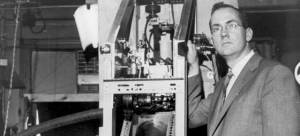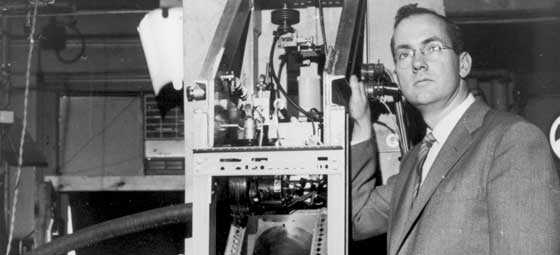Ben Longnecker
Contributing Writer
News

Charles Townes, a scientist, pioneer, teacher, religious man, died at the age of 99 Jan. 27. His legacy both at Furman and throughout world lives on through his work, teachings, and relationships..
Charles Townes, born and raised in Greenville, attended Furman University. In 1935, at the age 19, he graduated summa cum laude with a Bachelor of Science in Physics and a Bachelor of Arts in Modern Language. He went on to receive his Masters degree in Physics at Duke and later his Ph.D. at California Institute of Technology.
Townes most significant achievements occurred in the 1950s when he conceptualized a device while sitting on a park bench in Washington D.C. that would amplify microwaves by stimulated emission. This idea led Townes to create the precursor to the laser, a device known as the maser.
Townes won the Nobel Prize in Physics for his work on the maser in 1964.
In the 1970s, Townes contributed to astrophysics by pioneering a new method to amplify telescopic power by binding light from multiple telescopes. The most powerful telescopes on this planet use his technique to this day. Then, in 1985, Townes became the first astronomer to discover the black hole at the center of the Milky Way galaxy.
Putting his numerous scientific achievements aside, Townes was a deeply religious man. In an interview with NPR in 2005, he stated, "religion is an attempt to understand the purpose and meaning of our universe. What is science? It is an attempt to understand how our universe works. Well, if there is a purpose and meaning, that must have something to do with how it works, so those two must be related.”
Charles Townes founded the lecture series on faith and reason on Furman’s campus to further the student’s understanding of how science and religion can be intertwined. He also founded the Charles Townes scholarship, which grants $25,000 to qualified students each year.
In his personal life, “Charles Townes was a kind man; people were always stuck about how interested he was in the those around him” said Furman physics professor, Dr. Susan D’Amato.
“A brilliant scientist, you might think, would be aloof or conceited but he was not that way at all,” D’Amato said."
A humble man, Townes constantly gave back to Furman both financially and through his intellectual contributions. He served on the board of trustees and gave a significant amount of capital to be invested in the science programs at Furman.
The world will forever remember his scientific contributions that are present throughout our daily lives: The DVD, Internet optic wires, eye surgery, and bar-code scanners are applications of Charles Townes’ ideas. When Charles Townes sat on that park bench in Washington, D.C., he did not only revolutionize science; he changed the world.
